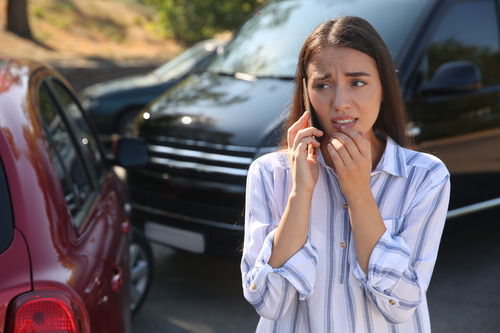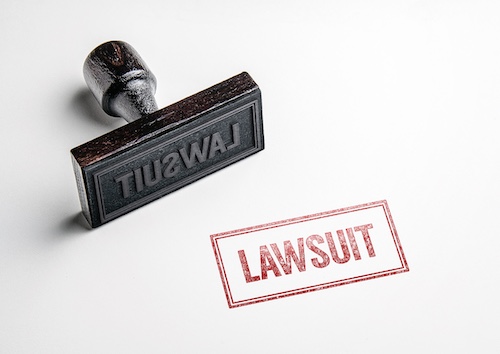At GMV Law Group, we are a team of experienced personal injury attorneys based in Atlanta, Georgia. We focus on helping people who have been injured in car accidents, including rental car accidents, fight for the compensation they deserve. We understand how stressful dealing with insurance companies can be, and we work hard to protect your rights every step of the way.
Being involved in a rental car accident in Georgia can be overwhelming, especially if you are not at fault. You may wonder who will pay for vehicle damage, medical expenses, and lost wages, and how to deal with insurance companies and the rental car company. Georgia’s at-fault laws and multiple layers of insurance coverage can make the process confusing.
In this blog, we explain what to do if you are in a rental car accident in Georgia and not at fault, who may be responsible for paying damages, and why working with an experienced Atlanta car accident attorney can help you protect your rights and seek full compensation.
First Steps to Take After a Rental Car Accident in Georgia (Not At Fault)
If you are involved in a rental car accident in Georgia and are not at fault, there are specific steps you should follow to protect your rights and strengthen any future insurance claims or personal injury claims.
Ensure Safety and Seek Medical Attention
First, make sure everyone is safe. If anyone is injured, call 911 and request medical help. Even if injuries seem minor, seek medical care as soon as possible. Some injuries, such as whiplash or internal trauma, may not show immediate symptoms. Documenting medical expenses from the start is essential if you need to seek compensation later.
Call the Police and Get an Accident Report
In Georgia, you must report any car accident that causes injuries or property damage over $500. Always call the police, even if the other driver admits fault. The police report will document important facts, including who the at-fault driver is, and will serve as key evidence in insurance claims. Make sure to get a copy or at least the report number for future reference.
Exchange Information with All Parties Involved
Exchange driver’s license, insurance information, and contact details with the other driver. If there are witnesses, get their names and phone numbers. Also, write down information about the rental car company, including the rental agreement number. This step is important for notifying the rental car company and proving who was involved in the auto accident.
Document the Scene and Gather Evidence
Take clear photos of all vehicle damage, the position of the cars, license plates, and the surrounding area. Photograph any visible injuries. If possible, record a video showing the full scene. These images will help show what happened and support your case if there is a dispute with an insurance company about fault or liability.
Notify the Rental Car Company Immediately
Contact the car rental company as soon as possible to report the accident. Follow their instructions about towing or returning the damaged car. Failing to report the rental car accident quickly could cause problems with insurance coverage. Check whether you purchased extra insurance like a collision damage waiver (CDW) or if rental car insurance was provided through a credit card.
Avoid Speaking to Insurance Adjusters Without Legal Advice
Do not give a recorded statement to the other driver’s insurance company without speaking to an experienced car accident lawyer first. Adjusters may try to get you to admit partial fault or downplay your injuries. Protect your rights by speaking to a car accident attorney before answering any questions about the accident.
Dealing with Insurance Companies: Understanding Coverage Layers
After a rental car accident in Georgia, dealing with insurance companies can be challenging. You may need to work with multiple insurers, including your own insurance company, the other driver’s insurance company, and the rental car insurance provider. Knowing how these layers of coverage work helps protect your right to compensation.
Notify Your Own Insurance Company Even If Not at Fault
Contact your auto insurance company soon after the accident, even if you are not at fault. Some insurance policies require you to report any car accident, including those involving rental cars. Your insurance company may offer rental coverage, medical payments coverage, or uninsured motorist coverage, depending on your policy. Reporting the auto accident also helps protect you if the other party’s insurance company delays or denies the claim.
File a Claim with the At-Fault Driver’s Insurance Company
Since Georgia is an at-fault state, the other driver’s insurance company should pay for your property damage, medical expenses, and lost wages if their driver caused the accident. File a claim as soon as possible. Be prepared to provide the police report, photos of the vehicle damage, and any evidence proving the other driver was responsible. Keep in mind that insurance companies may try to reduce or deny your claim, so be careful when discussing the accident with adjusters.
Understand What Rental Car Insurance Does and Does Not Cover
If you bought rental car insurance, it may cover damage to the rental car or provide liability insurance for injuries and damages you cause. However, rental car insurance usually does not cover your personal injuries or damage to the other driver’s vehicle. If you declined extra insurance at the rental counter, you might need to rely on your own insurance policy or the other driver’s liability insurance to cover damages. Always review what rental coverage you have before making a claim.
Avoid Giving Recorded Statements Without Legal Advice
Insurance adjusters may ask for a recorded statement soon after the accident. Do not agree to this without first speaking to an experienced car accident lawyer. Adjusters often use these statements to blame you for the accident or minimize your injuries. A car accident attorney can advise you on how to speak with insurance companies and protect your claim for full compensation.
Watch for Delays, Denials, and Low Offers
It is common for insurance companies to delay claims or offer less than what your claim covers. If you face delays or receive a low settlement offer, contact an experienced attorney who can help you fight for the full extent of your damages, including medical bills, vehicle damage, and non-economic damages like pain and suffering.
Who Pays for What? Understanding Liability in Georgia
In Georgia, determining who pays for damages after a rental car accident depends on fault, insurance coverage, and the type of damages involved. Knowing how liability works will help you claim compensation for your losses.
The At-Fault Driver’s Insurance Pays for Damages
Georgia follows an at-fault system, meaning the driver who caused the accident is responsible for paying damages. If another driver caused the rental car accident, their liability insurance should cover property damage, medical expenses, and lost wages. You can file a claim with the other driver’s insurance company to pay for vehicle damage and injuries.
Who Pays for Damage to the Rental Car?
Damage to the rental car is usually covered first by the at-fault driver’s insurance. If their insurance company denies the claim or delays payment, your rental car insurance or collision damage waiver (CDW) may cover repairs. If you did not buy extra insurance from the car rental company, you may need to rely on your own auto insurance policy, if it extends to rental cars. Always check what insurance coverage applies before renting.
Who Pays for Medical Expenses and Lost Wages?
If you are injured, the at-fault driver’s liability insurance should cover medical bills and lost income. If they do not have enough insurance coverage, you may use your own insurance, including medical payments (MedPay) or uninsured/underinsured motorist coverage (UM/UIM). You may also seek compensation through a personal injury claim for pain and suffering, lost wages, and non-economic damages.
What if the Other Driver is Uninsured or Underinsured?
If the at-fault driver has no insurance or too little to pay for all damages, you may have to file a claim under your own UM/UIM coverage. This can help pay for medical expenses, vehicle damage, and other losses. You should check if your insurance policy includes this protection, especially when using a rental car.
Rental Car Company’s Role in Paying for Damages
The car rental company may require you to pay upfront for vehicle damage if the other driver is at fault but refuses to pay. If you purchased rental car insurance or a collision damage waiver, it may cover these costs. However, without extra insurance, you may be held responsible until the rental company is reimbursed by the liable party’s insurance company.
Consult With an Experienced Atlanta Car Accident Lawyer ASAP!
If you were involved in a rental car accident in Georgia and are unsure who is responsible for paying for vehicle damage, medical expenses, or lost wages, our team at GMV Law Group is here to help. Dealing with insurance companies, rental car companies, and understanding your coverage options can be stressful and confusing, especially when you are not at fault.
Contact us at 404-975-4878 for a free claim review today!





